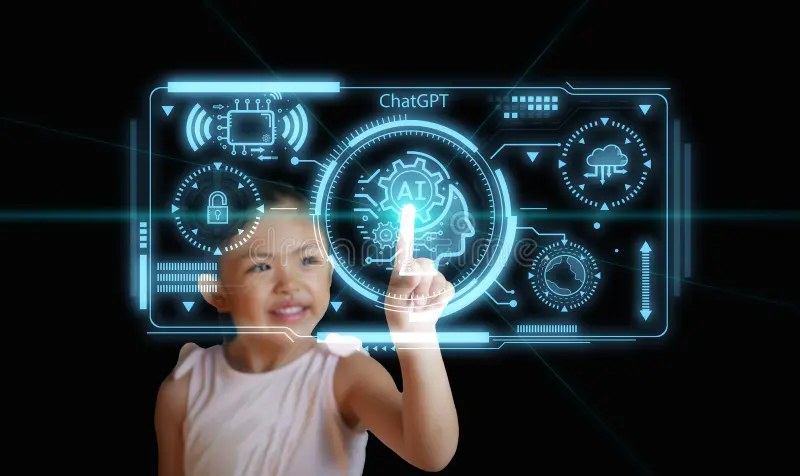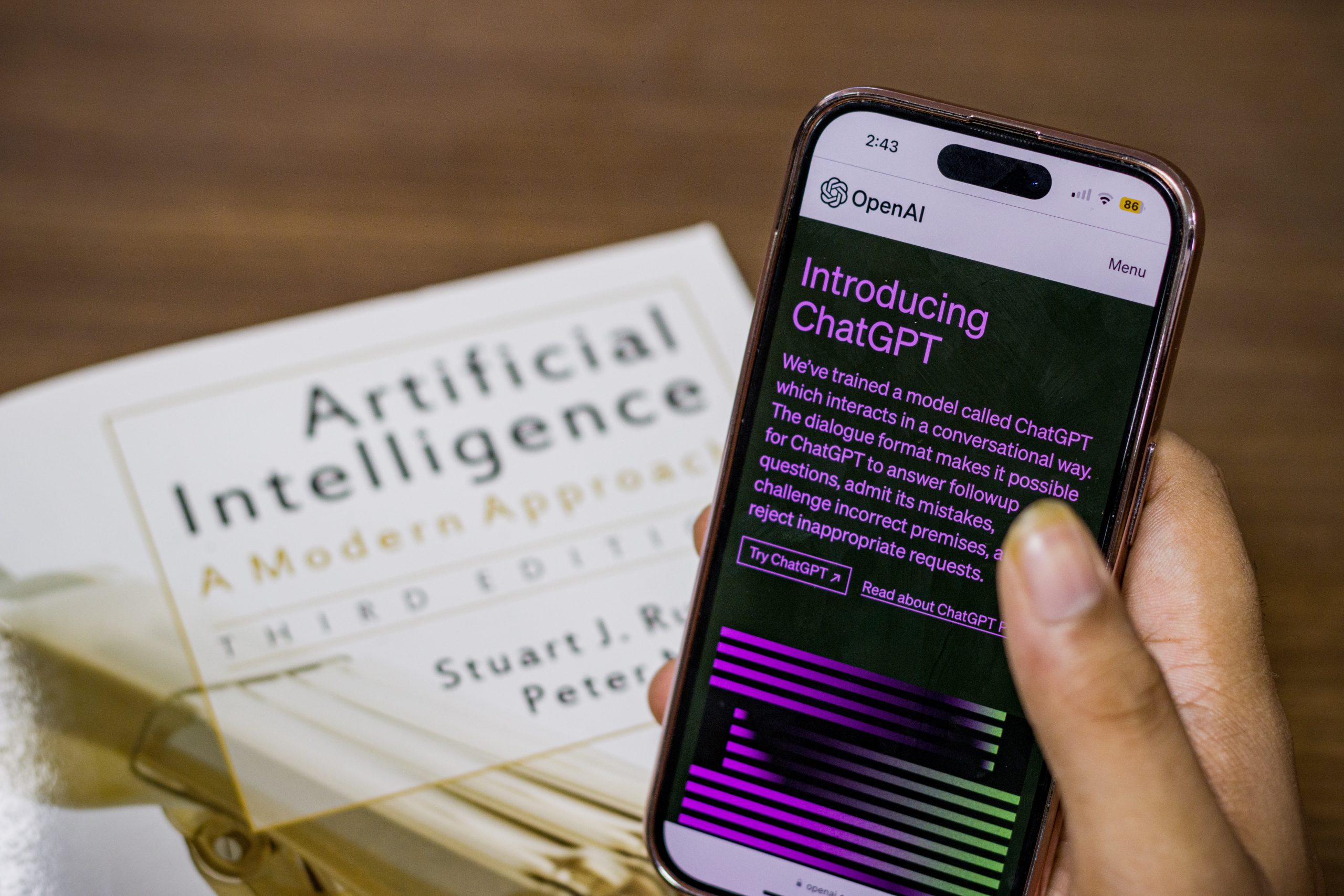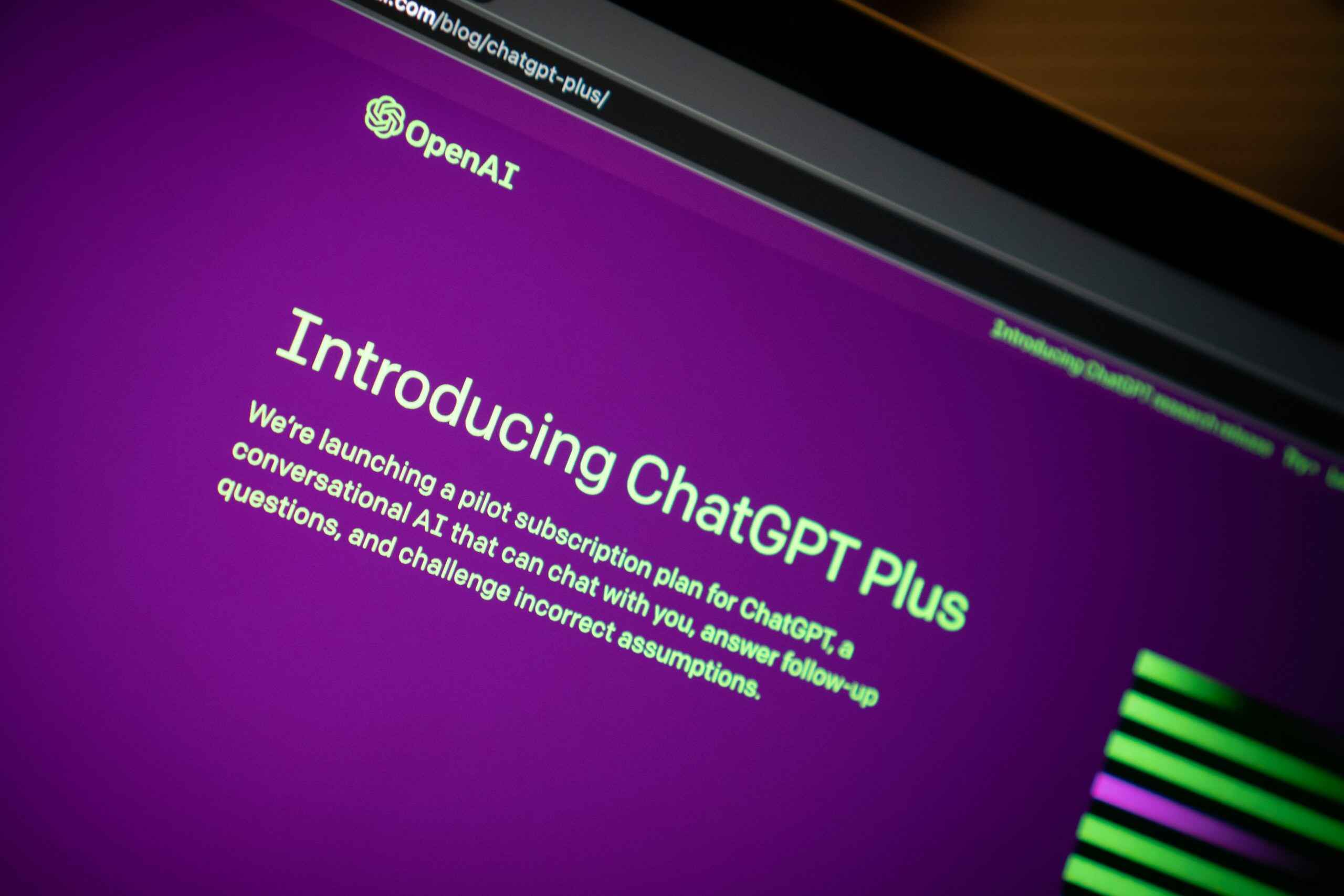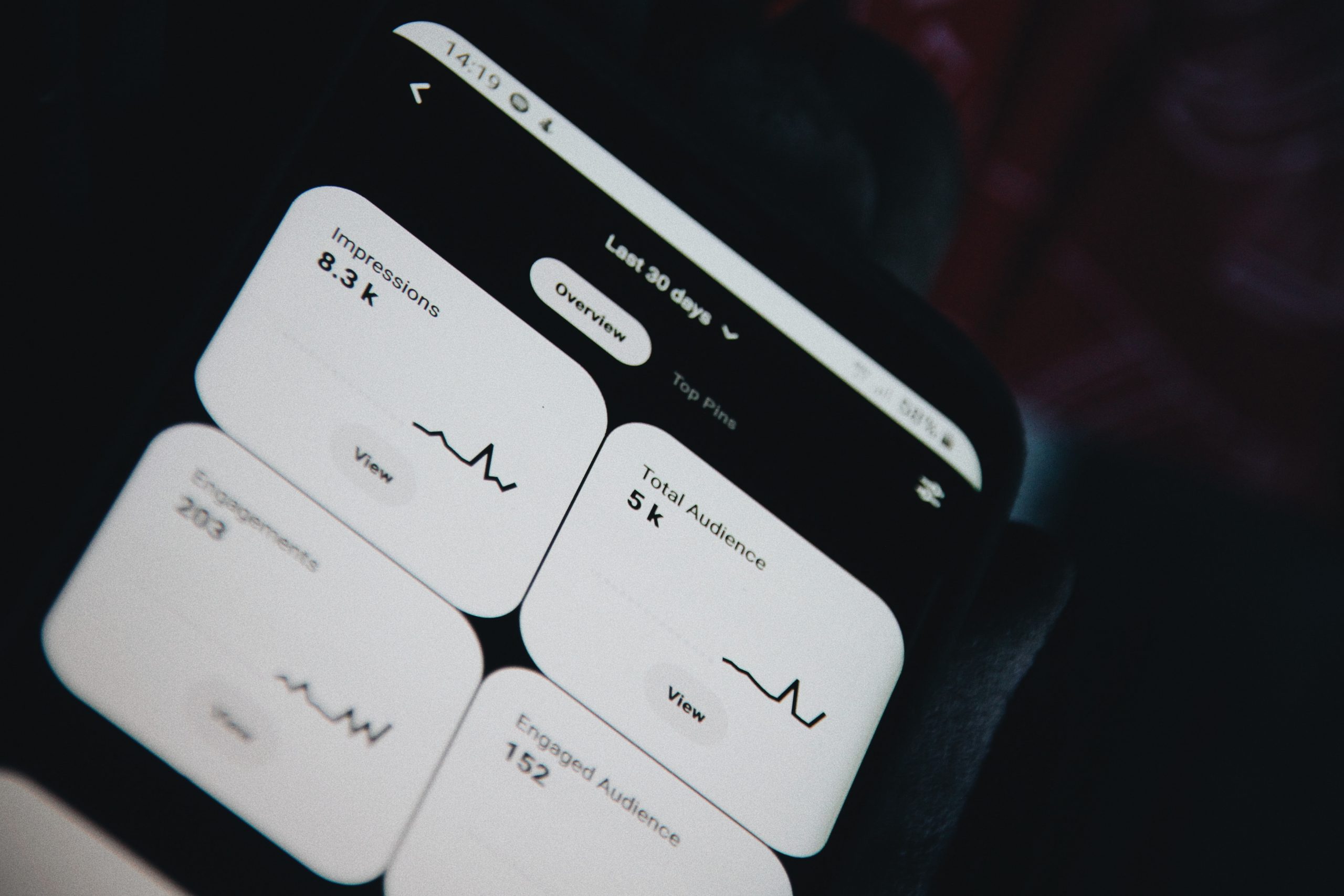In the digital age, technology has transformed various industries, and education is no exception. With the advancements in Artificial Intelligence (AI), educators now have the opportunity to personalize learning experiences for students like never before. By harnessing the power of AI, teachers can tailor instruction to individual needs, allowing each student to reach their full potential.
In this article, we will explore the role of AI in education, the key benefits of personalized learning, and provide tips for educators to get started with AI personalization. We will also delve into real-life case studies of successful AI personalization in schools.
Understanding the Role of AI in Education
Artificial Intelligence has revolutionized various industries, and its potential in the field of education is immense. AI refers to the simulation of human intelligence in machines. In the context of personalized learning, AI algorithms can analyze vast amounts of data to identify patterns, assess student capabilities, and provide tailored recommendations.
These intelligent algorithms can adapt content delivery, assess learning progress, and offer personalized feedback that caters to each student’s unique strengths and weaknesses.
We at Wesoftyou understand the power of AI in education. From our experience in software development, we have seen how AI-driven technologies can transform traditional classrooms into dynamic and adaptive learning environments.
One of the key advantages of incorporating AI in education is its ability to provide real-time feedback to both students and teachers. Through AI-powered systems, educators can track student performance metrics, identify areas of improvement, and intervene promptly to address any learning gaps. Students, on the other hand, receive instant feedback on their assignments and assessments, enabling them to understand their progress and make necessary adjustments to their learning strategies.
Furthermore, AI can facilitate a more inclusive learning environment by catering to diverse learning styles and preferences. By analyzing individual learning patterns, AI algorithms can customize learning materials to suit different students’ needs, ensuring that each learner receives content in a format that resonates best with them. This personalized approach not only enhances student engagement but also fosters a deeper understanding of the subject matter.
Key Benefits of Personalized Learning
Personalized learning, facilitated by AI, offers numerous advantages for both educators and students alike.
One significant benefit of personalized learning is the ability to cater to diverse learning needs within a classroom. By utilizing AI-powered platforms, educators can create customized learning paths for each student, taking into account their unique strengths, weaknesses, and preferred learning styles.
This individualized instruction ensures that students receive targeted support in areas where they may be struggling, while also allowing them to advance at a pace that is comfortable for them.
Individualized Instruction
AI-powered platforms can create customized learning paths for each student, considering their specific needs and preferred learning styles. This ensures that students receive targeted instruction and can progress at their own pace.
Improved Engagement and Motivation
By tailoring content to students’ interests and abilities, personalized learning fosters a sense of engagement and motivation. When students are interested and actively involved in their education, they are more likely to become lifelong learners.
Efficient Use of Instructional Time
With AI, educators can automate routine tasks such as grading and assessment, freeing up valuable time that can be spent on providing personalized attention to students who need it the most.
Enhanced Student Outcomes
Personalized learning has been shown to improve student outcomes, including academic achievement and graduation rates. By addressing individual learning gaps, students can achieve their full potential.
Another advantage of personalized learning is the opportunity for educators to track student progress more effectively. AI algorithms can analyze student performance data in real-time, allowing teachers to identify areas where students may be struggling and intervene promptly. This proactive approach to monitoring student progress can lead to early interventions that prevent students from falling behind and ensure that they stay on track to meet their learning goals.
Tips for Educators to Get Started with AI Personalization
If you are an educator looking to incorporate AI into your classroom, here are some practical tips to get you started:
- Set Clear Goals: Define your learning objectives and identify specific areas where AI can enhance personalized learning.
- Choose the Right AI Tools: Research and select AI tools that align with your goals and the needs of your students. WeSoftYou, a trusted software development company, offers expertise in developing AI-driven solutions tailored for education.
- Collect Relevant Data: Gather data on student performance, learning styles, and interests. This data will serve as the foundation for AI algorithms to provide personalized recommendations.
- Engage Students: Communicate with students about the benefits of personalized learning and involve them in the decision-making process. Their input can help refine and improve the AI-based learning experience.
- Monitor and Evaluate: Regularly assess the effectiveness of AI personalization. Monitor student progress, gather feedback, and make necessary adjustments to optimize learning outcomes.
Expanding on the importance of setting clear goals, it is crucial for educators to not only define their objectives but also to ensure that these goals are measurable and achievable. By establishing specific metrics for success, educators can track the impact of AI personalization on student learning outcomes and make data-driven decisions to enhance their teaching strategies.
In addition to choosing the right AI tools, educators should also prioritize ongoing professional development to stay updated on the latest advancements in AI technology. By attending workshops, webinars, and conferences focused on AI in education, educators can expand their knowledge and skills, enabling them to effectively integrate AI tools into their teaching practices.
Collaborating with other educators and experts in the field can also provide valuable insights and best practices for successful implementation of AI personalization in the classroom.
Case Studies: Successful AI Personalization in Schools
Real-life case studies offer valuable insights into the implementation and impact of AI personalization in schools. Let’s explore a couple of notable examples:
Case Study 1: Oak Grove Middle School
Oak Grove Middle School, located in the heart of Silicon Valley, embraced AI personalization to transform its teaching practices. By implementing an AI-powered learning system, students received tailored content and real-time feedback based on their individual strengths and weaknesses. This innovative approach not only revolutionized the way students learned but also fostered a deeper understanding of their unique learning styles.
With the help of AI, Oak Grove Middle School was able to identify and address gaps in student knowledge more effectively. The AI algorithms analyzed vast amounts of data to pinpoint areas where students struggled the most. By providing targeted interventions and personalized support, the school saw a remarkable improvement in student performance across all subjects.
Case Study 2: Maple High School
Maple High School, a large urban school district, used AI to address its high dropout rate. By analyzing student data and identifying potential risk factors, AI algorithms provided targeted interventions and personalized support to at-risk students. This proactive approach not only helped prevent students from dropping out but also empowered them to overcome challenges and succeed academically.
Through the use of AI, Maple High School was able to create a supportive and nurturing environment for its students. The AI-powered system continuously monitored student progress and provided timely interventions when necessary. This personalized approach not only improved academic outcomes but also fostered a sense of belonging and motivation among students, leading to a positive school culture.
These case studies highlight the transformative potential of AI for personalized learning. As more schools and educators embrace AI, we can expect to see even greater improvements in student outcomes and educational equity.
Case Study 3: Luca by WeSoftYou
LUCA, a reading platform developed by WeSoftYou, exemplifies the transformative power of AI personalization in education. Focused on helping children with dyslexia, Luca offers a highly individualized learning experience that adapts to each student’s specific needs. By leveraging AI, the platform provides personalized reading exercises and real-time feedback, ensuring that each child receives the support they require to overcome reading challenges.
In schools that have implemented Luca, there has been a noticeable improvement in reading fluency and comprehension, demonstrating the platform’s effectiveness in addressing learning disabilities through tailored interventions.
At Wesoftyou, we are committed to driving innovation in education through AI and software development. Our team of experts is dedicated to creating cutting-edge solutions that empower educators and students alike. Contact us today for a free consultation or project estimation to learn how we can help your educational institution implement personalized learning with AI.
With our expertise and passion for educational technology, we can assist you in leveraging AI to create a personalized learning experience that caters to the unique needs of every student. Together, let’s shape the future of education and unlock the full potential of AI in schools.
Conclusion
In conclusion, AI has the potential to revolutionize education by enabling personalized learning experiences. By leveraging AI algorithms, educators can create tailored instruction, improve student engagement, and enhance learning outcomes.
As a software development company with a proven track record, Wesoftyou recognizes the power of AI in education and is dedicated to empowering educators to personalize learning for every student. Embrace the possibilities of AI in education and unlock the full potential of your students.
Whether you’re looking to develop an MVP, a dynamic web platform, or a mobile application, we guarantee a perfect alignment with your project’s goals and budget. Contact us to get a quote and embark on a journey to elevate education through the power of AI.
AI algorithms analyze data on individual student performance, learning styles, and interests. This data is used to create personalized learning paths, recommend targeted resources, and provide real-time feedback tailored to each student’s needs.
AI can also track students’ progress over time, identifying areas of strength and areas for improvement. By continuously adapting to each student’s learning journey, AI can help optimize educational outcomes and foster a deeper understanding of complex concepts.
Yes, personalized learning with AI can be adapted for students of all grade levels. Educators can adjust the level of complexity and customize content to meet the needs of different age groups and subject areas.
Furthermore, AI can support differentiated instruction by providing additional challenges for advanced learners and offering extra support for students who may be struggling with certain concepts. This flexibility ensures that each student receives a tailored educational experience that meets their unique learning requirements.
While AI can enhance personalized learning experiences, teachers play a critical role in facilitating student growth, providing emotional support, and fostering critical thinking skills.
Teachers bring a human touch to education that AI cannot replicate, such as empathy, creativity, and the ability to inspire a love of learning. By combining the strengths of AI technology with the expertise of teachers, schools can create a powerful educational environment that nurtures students’ holistic development.
It is important to ensure equitable access to technology for all students. Schools can explore various strategies, such as providing devices and internet access, partnering with community organizations, or leveraging mobile technologies to overcome barriers to technology access.
In addition, educators can design blended learning approaches that incorporate both online and offline resources to accommodate students with limited technology access. By embracing a variety of teaching methods, schools can ensure that all students have the opportunity to benefit from personalized learning experiences, regardless of their technological constraints.






















